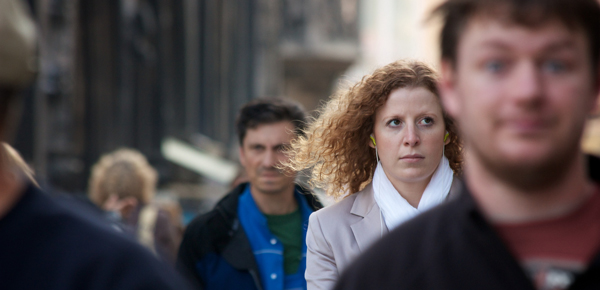My friend Michelle did what I wasn’t able to: She left Portland for Graduate School. All her friends were here. Her life that she had known for the previous 10 years was here. I was impressed that she was able to do this, so I wanted to find out what she had to say about making the decision and whether or not she thought it was the right one. Here is what she had to say:
The moment I knew I would be attending graduate school over 5,000 miles from my home, my friends, and the life I’d worked so hard to build, I was standing in a park staring into my best friend’s eyes. I’d met Sarah for her lunch break across the street from the hospital where she was working. It was a beautiful late summer day in Portland, and we had been walking in the park, appreciating the weather. We’d stopped to face each other, and her hands were on my shoulders. “Yes, you can. You have to. It’s only two years, and we will all be here when you get back. I want to tell you to stay, but we both know you have to go.”
By this time I’d already completed all the legwork involved in order to make the move happen. I’d applied, I’d been accepted, I’d contacted the admissions department and confirmed that I would be attending. I’d done all of the financial research involved and I discovered that I was ineligible for any aid. So I swallowed my pride and asked for my help. My parents scraped together what extra money they could spare (and some that they couldn’t). I had cashed out my own retirement fund. And perhaps the hardest things I have ever done, I asked a close friend who had recently come into some extra money to loan me the $6000 I needed to meet the baseline financial requirements for the move.
In retrospect, it’s obvious that this amazing, supportive network of family and friends was the single greatest contributing factor to my success in grad school. However, leaving that network is what led to the second biggest factor in my success: developing a new community through engagement with my colleagues. I chose an international program because it was the best choice in regard to my field. My degree is in Public Policy, with a focus on International Affairs and Non-Profit and Public Management. No program within the United States could offer me the practical experience of studying with the diverse student body that my program in Germany provided. But I did not foresee the benefit that completely leaving my community and putting myself far outside my comfort zone would have for my future. I doubt that if I had gone into school with strong local ties, I would have formed the bonds I did with my fellow students, and it was these bonds that led to my professional success after graduate school.
My class consisted of about 60 different people from over 30 countries. Even though the program was in Germany, only four of us were German. Since we were all completely out of our element, we worked together not only to get through the program, but to cope with the day-to-day trials of living in a new country. We shared knowledge and went in groups in order to navigate the bureaucracy involved with obtaining our visas. We went grocery shopping together, sharing whatever language skills we possessed in order to buy what we needed. We shared in each others’ cultures in order to create a sense of home by hosting themed-nights and cooking traditional meals for each other. Since I had the advantage of being one of a handful of native English speakers attending an English-based program, I considered it my responsibility to edit the papers of any of my colleagues who asked. We all did what we could to make a rewarding, but difficult experience easier for each other, and the shared challenge bonded us irrevocably.
Though at times I struggled, if I could go back to that fatal moment in the park with Sarah, I wouldn’t change anything. Graduate school is meant to be a challenge. The sacrifices are great for anyone who chooses that path, whether it be in their hometown or across the globe. I remember how scared I was when I got off the tram and walked up to the front of my school to meet my colleagues for orientation. A woman approached me and asked if I was also a new Willy Brandt School student. I indicated that I was, and we exchanged names and countries. Then Edith, my first friend at grad school laughed, and told me that I was the first native English speaker that she’d ever spoken to. I was immediately in awe at the thought of this woman starting an arduous graduate program in a foreign country in a language that was not her own and which she had very little opportunity to practice. That put my own struggle into perspective and inspired me when I felt discouraged by reminding that I am–that we are all–capable of so much, if we only try.






